- Home
- Prelims
- Mains
- Current Affairs
- Study Materials
- Test Series
26th Oct 2021
WEST BENGAL'S POWER TO WITHHOLD CONSENT TO CBI INVESTIGATION NOT ABSOLUTE: CENTRE TO SC
The Union Government has told the Supreme Court that the West Bengal State Government does not have any absolute power to keep the Central Bureau of Investigation (CBI) from investigating crimes inside the State.
Highlights:
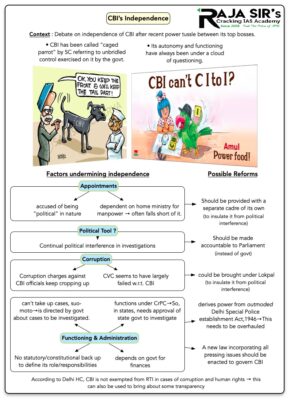

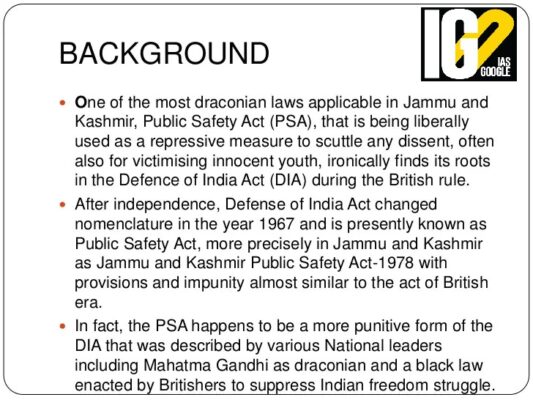


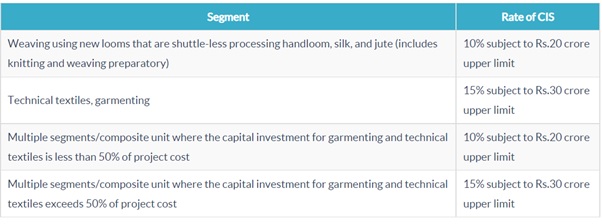
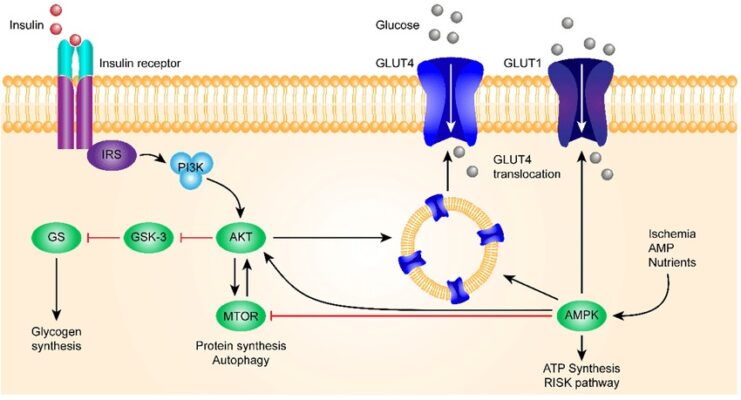
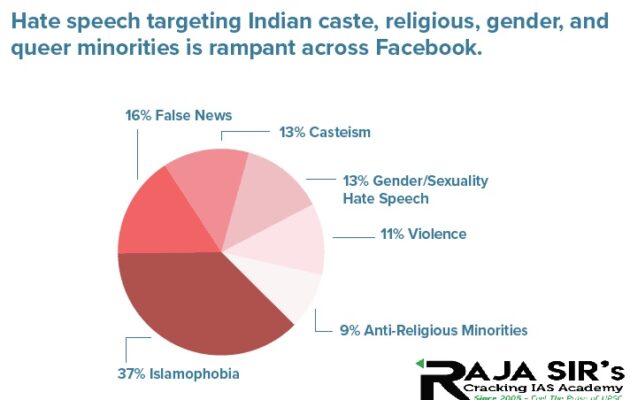

- The Union Government was responding to a suit filed by the West Bengal Government against the Union of India under Article 131 of the Constitution.
- Article 131 gives the Supreme Court original jurisdiction (i.e., the Supreme Court can hear the case first-hand rather than reviewing a lower court’s judgment) to mediate disputes between states or between the Centre and states.
- General consent is given to help the CBI conduct its investigation into cases of corruption against central government employees in the concerned state. Almost all states have given such consent. Otherwise, the CBI would require consent in every case.
- The CBI must mandatorily have the consent of that state government, in order to conduct an investigation in a state
- The general consent is given by State governments for periods ranging from six months to a year to the CBI and all agencies under the Delhi Special Police Establishment (DSPE) Act, 1946.
- There are two kinds of consent: general and specific.
-
- When a state gives a general consent to the CBI for probing a case, the agency is not required to seek fresh permission every time.

- When a general consent is withdrawn, CBI needs to seek case-wise consent for investigation from the concerned state government.
- If specific consent is not granted, the CBI officials will not have the power of police personnel when they enter that state.
- There are seven states which have withdrawn general consent to the CBI: Mizoram, West Bengal, Rajasthan, Maharashtra, Chhattisgarh, Kerala and Jharkhand.

- Post-civilian killings and in the days running up to Union Home Minister’s visit to Srinagar, around 700 people have been detained in Jammu and Kashmir, including a few under the stringent Public Safety Act (PSA).
- This is a preventive detention law that allows to detain a person up to two years without a trial to prevent him or her from acting in any manner that is prejudicial to the security of the state or the maintenance of the public order.
- It comes into force by an administrative order passed either by Divisional Commissioner or the District Magistrate, and not by a detention order by police based on specific allegations or for specific violation of laws.
- It was brought in to prevent timber smuggling, and keep the smugglers in prison.
- It is similar to the National Security Act, but this was enacted two years before the NSA came into being.
- When a person is detained under the PSA, the DM communicates to the person within five days, in writing, the reason for the detention or can take up to 10 days in exceptional circumstances, or as per Section 13(2), can refrain from it altogether if he or she thinks the disclosure of the facts is against public interest.
- Within four weeks of passing the detention order, the government has to refer the case to an Advisory Board.
- This Advisory Board will have to give its recommendations within eight weeks of the order.
- If the Board thinks that there is cause for preventive detention, the government can hold the person up to two years.
- When a person is arrested under the PSA, they do not have the right for legal representation before the Advisory Board unless sufficient grounds can be established that the detention is illegal.
- The PSA allows for detention of a person without a formal charge and without trial. It can be slapped on a person already in police custody; on someone immediately after being granted bail by a court; or even on a person acquitted by the court.
- A person who is detained under the PSA need not be produced before a magistrate within 24 hours of the detention.
- The detained person does not have the right to move a bail application before a criminal court, and cannot engage any lawyer to represent him or her before the detaining authority.
- However, if the order is quashed, there is no bar on the government passing another detention order under the PSA and detaining the person again.
- This administrative preventive detention order can be challenged is through a habeas corpus petition filed by relatives of the detained person.
- The High Court and the Supreme Court have the jurisdiction to hear petitions and pass a final order seeking quashing of the PSA, thereby providing judicial safeguard to the detainee.
- Article 22(a) of the Constitution states that no person who is arrested shall be detained in custody without being informed, of the grounds for such arrest, nor shall he be denied the right to consult, and to be defended by, a legal practitioner of his choice.
- Article 22(b) states that every person arrested and detained shall be produced before the nearest magistrate within a period of 24 hours and no such person shall be detained beyond this period without the authority of a magistrate.
- However, Article 22(3)(b) allows for preventive detention and restriction on personal liberty for reasons of state security and public order.
- The DM is under a legal obligation to analyze all the circumstances and material before depriving that person of his or her personal liberty.
- As the DM can detain a person multiple times under the PSA, he or she has to produce fresh facts while passing the subsequent detention order.
- He/She has to show that the detention order follows the procedure established by law.
- The District Magistrate who has passed the detention order has protection under the Act, which states that the order is considered “done in good faith”. Therefore, there can be no prosecution or any legal proceeding against the official who has passed the order.
- After an amendment by the Governor, persons detained under the PSA in Jammu & Kashmir can be detained in jails outside the state.

- The court rejected the Bollywood actor’s son's bail application on the ground that he had “conscious possession” of drugs.
- The Supreme Court defines the word ‘conscious’ as “awareness about a particular fact” a state of mind which is deliberate or intended.
- He is accused of consumption, attempting to commit offenses under the NDPS Act, abetment/conspiracy, and offenses under Section 8(c).
- Section 35 of the Act recognizes the ‘presumption of culpable mental state’.
- Possession need not be physical and could be constructive.
- The liability is on the accused to dispel the court’s presumption of his culpable mental state. Section 54 of the Act also allows for a similar presumption in the possession of illicit articles.
- Aim: It prohibits a person from the production, possession, sale, purchasing, transport, storage, and/or consumption of any narcotic drug or psychotropic substance.
- The Act is designed to fulfill India's treaty obligations under the Single Convention on Narcotic Drugs, Convention on Psychotropic Substances, and United Nations Convention Against Illicit Traffic in Narcotic Drugs and Psychotropic Substances.
- Applicabiltiy: The Act extends to the whole of India and it applies also to all Indian citizens outside India and to all persons on ships and aircraft registered in India.
- As per the Act, “narcotic drug” means coca leaf, cannabis (hemp), opium, popy straw and includes all manufactured drugs.
- Further, “psychotropic substance" refers to “any substance, natural or synthetic, or any natural material or any salt or preparation of such substance or material included in the list of psychotropic substances specified in the Schedule".
- The punishment is graded into three categories depending on the quantity of drugs seized and also provides for judicial discretion as far as the severity of punishment is concerned.
- Punishment for the cultivation of any cannabis plant: rigorous imprisonment for up to 10 years and can also involve a fine which may extend to Rs 1 lakh.
- Punishment for the seizure of a small quantity of cannabis: rigorous imprisonment of up to one year and include a fine of up to Rs 10,000.
- When the seizure is of a “quantity lesser than commercial quantity but greater than small quantity": rigorous imprisonment of up to 10 years and fine of up to Rs 1 lakh.
- Possession of a commercial quantity of cannabis is to be punished with rigorous imprisonment for upto 10 years which may extend to 20 years and while a fine of 1 lakh rupees but which may extend to two lakh rupees.

- ATUFS was reviewed to boost the Indian Textile Industry by enabling ease of doing business, bolstering exports & fuelling employment.
- To facilitate implementation, some of significant decisions to resolve pending issues and way forward include:
- Reduction of Compliance burden by accepting only single certificate from the concerned bank instead of multiple documents regarding evidence of payment for claimed machineries
- Rationalisation of GR related to cases of consortium finance
- Consideration of Standalone embroidery machines wef inception of the ATUFS.
- Facilitating Industry by providing Condonation of filing for UIDs to 1795 pending cases besides the cases in which cut off dates falls during 23rd March 2021 and 22 October 2021(COVID Second wave period) with time line of its submission to Office of Textile Commissioner/iTUFS within 90 days ( i.e., total period for unit & banks ).
- Condonation for the submission of JIT request to 814 units besides the unit in which cut off date for submission of JIT request in post COVID-19.
- Ministry of Textiles will simplify the procedure for Joint inspection using a calibrated approach to linking joint inspect to subsidy support size by reducing burden on bracket lower than Rs 50 lakh instead of present 100 %.

- Ministry of Textiles had introduced Technology Upgradation Fund Scheme (TUFS) in 1999 as a credit linked subsidy scheme.
- It is intended for modernization and technology up-gradation of the Indian textile industry, promoting ease of doing business, generating employment and promoting exports.
- Aim: To facilitate employment, investment, quality, productivity, as well as import and export substitution in the textile industry while also indirectly promoting investments in the manufacturing of machinery for textiles.
- Modifications carried out in scheme guidelines in 2018 and further streamlining of procedures have simplified the process for availing the subsidy under the scheme.
- In 2019, IMSC decided to introduce physical verification of machinery and computation of subsidy before releasing committed liability under previous versions of scheme (MTUFS, RTUFS & RRTUFS).
- Capital Investment Subsidy is provided to benchmarked machinery installed by the industry after physical verification.
- The scheme is being administered with a two stage monitoring mechanism by Technical Advisory-cum-Monitoring Committee (TAMC) and Inter-Ministerial Steering Committee (IMSC).
- The ongoing ATUFS has been approved in 2016 and implemented through web based iTUFS platform.
- ATUFS was approved for a period from 2015-16 to 2021-22 with an allocation of Rs. 17,822 crore.
- Eligible individual entities (not units) are entitled to avail reimbursement of the Capital Investment Subsidy (CIS) according to the rates given below:
- Silk sector
- Handloom sector
- Technical textiles
- Jute sector
- Madeup/garment manufacturing
- Processing fabrics, fibres, garments, madeup, and yarns
- Weaving preparatory, weaving, and knitting
- India is set to become a reinsurance hub with the International Financial Services Centre Authority (IFSCA).
- IFSC offers zero tax provision for 10 years, no foreign reinsurer has set up operations in the center till now.
- Global reinsurers can procure business from the region around India by setting up an operation in the GIFT City.
- Foreign insurers and reinsurers can set up branch offices as IFSC Insurance Offices (IIOs) to undertake insurance or reinsurance business from IFSC either by setting up branches or subsidiaries.
- No onshore assigned capital will be required for foreign insurers or foreign reinsurers setting up IIOs as branches.
- The assigned capital of $1.5 million can be maintained in home jurisdictions.
- No onshore solvency requirement for IIO in the IFSC.
- The assigned capital solvency margin will have to be maintained in the home jurisdiction.
- It regulates all financial services in International Financial Services Centres (IFSCs) in India.
- Headquarter: in Gandhinagar, Gujarat).
- Composition of the Authority (9 members):
- Chairperson
- One Member each to be nominated by: Reserve Bank of India (RBI),
- Securities Exchange Board of India (SEBI),
- Insurance Regulatory and Development Authority of India (IRDAI) and
- Pension Fund Regulatory and Development Authority (PFRDA)
- Two members to be dominated by the Central Government.
- Two other whole-time or full-time or part-time members.
- Tenure: All the members have a term of three years, subject to reappointment.
- Functions:
- Regulate financial products (such as securities, deposits or contracts of insurance), financial services, and financial institutions which have been previously approved by any appropriate regulator (such as RBI or SEBI) in an IFSC.
- Regulate all other such financial services/ products as may be notified by the Central Government or permitted by Financial Sector Regulators.
- Recommending any other financial products/services/financial institutions to the central government, which may be permitted in an IFSC.
- An IFSC caters to customers outside the jurisdiction of the domestic economy.
- Such centres deal with flows of finance, financial products and services across borders.
- IFSC would provide Indian corporates easier access to global financial markets.
- It would also complement and promote further development of financial markets in India.
- Fund-raising services for individuals, corporations and governments.
- Asset management and global portfolio diversification undertaken by pension funds, insurance companies and mutual funds.
- Wealth management.
- Global tax management and cross-border tax liability optimization, which provides a business opportunity for financial intermediaries, accountants and law firms.
- Global and regional corporate treasury management operations that involve fund-raising, liquidity investment and management and asset-liability matching.
- Risk management operations such as insurance and reinsurance.
- Merger and acquisition activities among Trans-national corporations.

- The study examined the effect of insulin on liver cells.
- It identifies potential components, whose modulation could lead to better therapeutic interventions in the future. This could reduce tissue damage, beyond the usual impact on blood glucose.
- Insulin is a chemical that allows cells to absorb glucose, and sugar, from the blood.
- Clusters of cells in the pancreas called islets, produce the hormone, and determine the amount based on blood glucose levels in the body.
- The higher the level of glucose, the more insulin goes into production to balance sugar levels in the blood.
- Insulin assists in breaking down fats or proteins for energy.
- If a body doesn’t make insulin, then it is sign of type 1 diabetes, and if a body doesn’t use insulin properly, then it is type 2 diabetes.
- People with type 1 diabetes need to take insulin to survive.
- People with type 2 can stave off insulin use and avoid it by exercising, adapting healthier eating habits, etc.
- Swelling of arms and legs, weight gain, low blood sugar (hypoglycemia).
- Sweating, dizziness, fast heart rate, confusion, blurred vision, anxiety, etc.

- Hate speech is understood as any kind of communication in speech, writing or behavior, that attacks or uses pejorative or discriminatory language with reference to a person or a group on the basis of who they are, in other words, based on their religion, ethnicity, nationality, race, color, descent, gender or other identity factor.
- As recognized by the Law Commission Report and by the Supreme Court in Shreya Singhal versus Union of India, speech can be restricted under Article 19(2) of the Indian Constitution only when the speech reaches the threshold of incitement.
- Political Propaganda: Political parties around the world revolve their political agenda around certain communities to influence and a create vote bank, by ways of hate speech.
- Superiority Complex: There is always a prevailing superiority complex in the so called upper section of the society on the base of race, religion, caste and sex which comes out in the form of hate speech towards the other sections of the society.
- Social media: The rise in the online social media platforms that provides anonymity enables anyone with access to internet, post hate speech comments online.
- It hurts the dignity of the victim.
- It gives rise to gender based and communal violence.
- The communities get polarized.
- Extreme form of hate speech can turn into terrorism.
- It harms the peace and harmony of the society.
- Towns, cities and gradually the whole country can get engulfed in riots.
- It harms the internal security of a nation.
- Section 124A IPC penalises sedition
- Section 153A IPC penalises ‘promotion of enmity between different groups on grounds of religion, race, place of birth, residence, language, etc., and doing acts prejudicial to maintenance of
- harmony’.
- Section 153B IPC penalises ‘imputations, assertions prejudicial to national-integration’.
- Section 295A IPC penalises ‘deliberate and malicious acts, intended to outrage religious feelings of any class by insulting its religion or religious beliefs’.
- Section 298 IPC penalises ‘uttering, words, etc., with deliberate intent to wound the religious feelings of any person’.
- Section 505(1) and (2) IPC penalises publication or circulation of any statement, rumour or report causing public mischief and enmity, hatred or ill-will between classes.
- Section 8 disqualifies a person from contesting election if he is convicted for indulging in acts amounting to illegitimate use of freedom of speech and expression.
- Section 123(3A) and section 125 prohibits promotion of enmity on grounds of religion, race, caste, community or language in connection with election as a corrupt electoral practice and prohibits it.
- Section 7 penalizes incitement to, and encouragement of untouchability through words, either spoken or written, or by signs or by visible representations or otherwise
- Section 3(g) prohibits religious institution or its manager to allow the use of any premises belonging to, or under the control of, the institution for promoting or attempting to promote disharmony, feelings of enmity, hatred, ill-will between different religious, racial, language or regional groups or castes or communities.
- Sections 5 and 6 of the Act prohibits transmission or retransmission of a programme through cable network in contravention to the prescribed programme code or advertisement code. These codes have been defined in rule 6 and 7 respectively of the Cable Television Network Rules, 1994.
- Education system has a prominent role to play in promoting and understanding compassion with others.
- Awareness programs and initiatives about maintaining cordial relationship must be taken by not only the government but also by private people.
- Although there are many laws regarding hate speeches but stricter penalizing is required as religious sentiments and beliefs are a precious thing for an individual.
- Fight against hate speech cannot be isolated. It should be discussed on a wider platform such as the United Nations.
- Every responsible government, regional bodies, and other international and regional actors should respond to this threat.
- Cases of hate speech can be addressed through Alternative dispute resolution as it proposes a shift from the long procedures of the court to the settlement of the dispute between parties by way of negotiation, mediation, arbitration and/or conciliation.









 Latest News
Latest News
 General Studies
General Studies